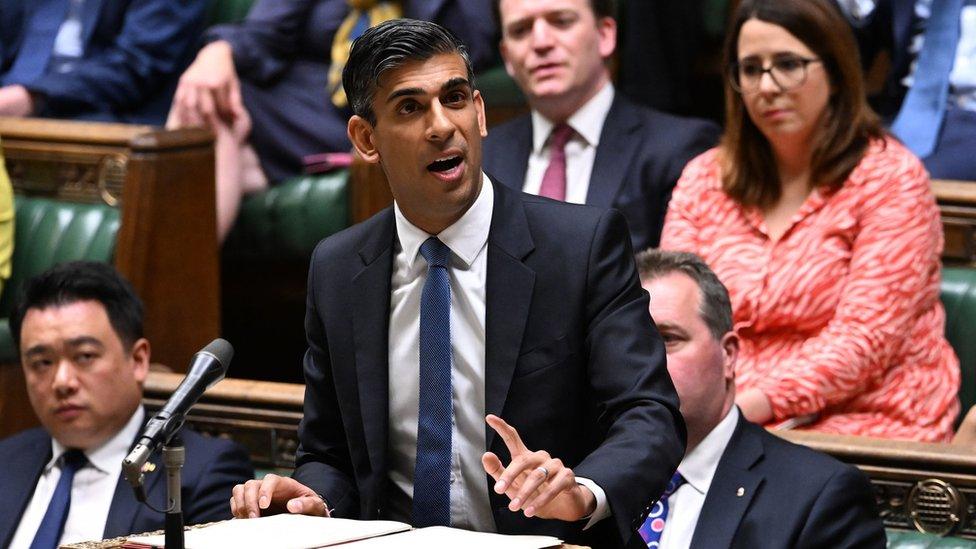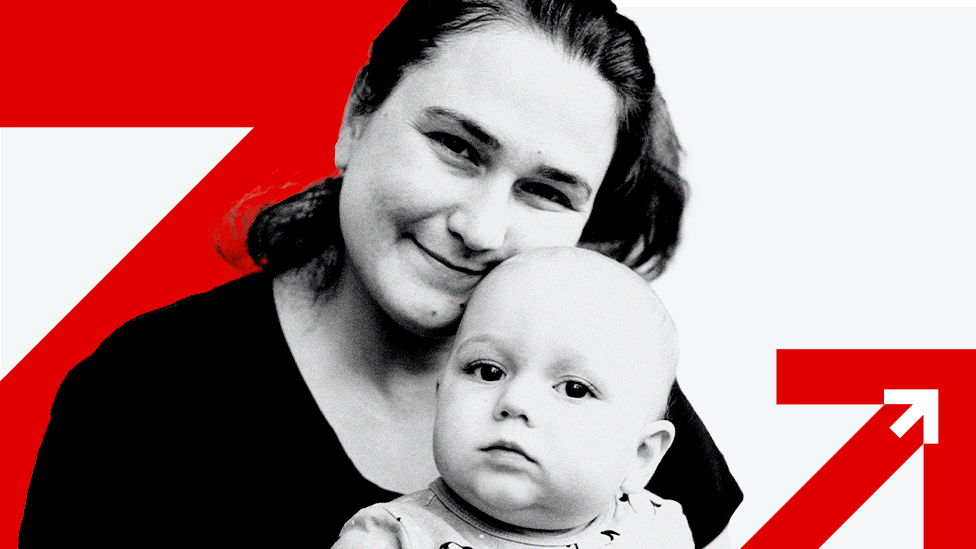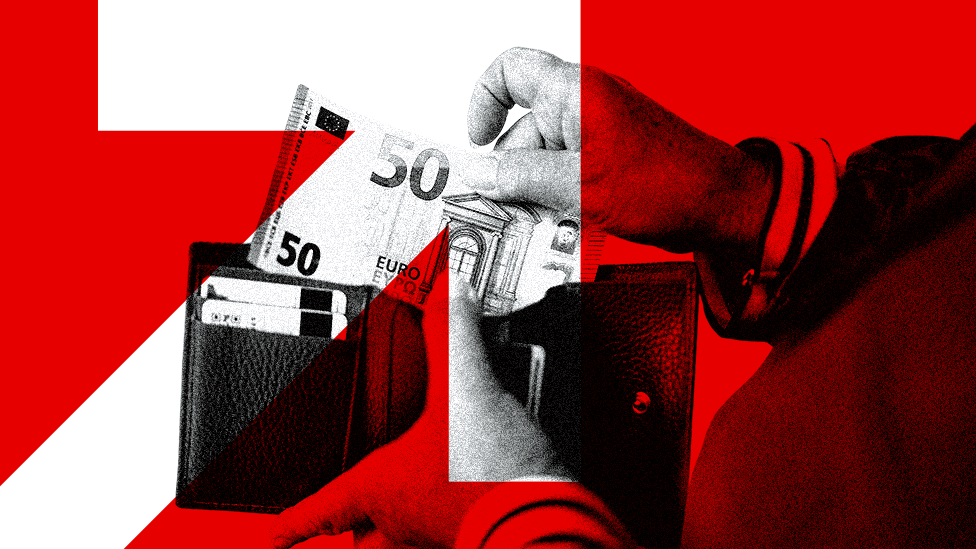Cost of living crisis prompts 'big state' response
- Published

Earlier this month I used the analogy that in dealing with stagflation - a period of simultaneous stagnant growth and high inflation - the Treasury and the Bank of England are having to ride a tandem across a tightrope.
Both institutions have individual balancing acts that are very difficult, but they also need to coordinate their responses carefully.
As it happens the classic textbook response to stagflation is for the central bank to raise rates to deal with accelerating prices, and the government to support the economy in some way. The UK is now far closer to that.
Indeed some economists suggest the Bank of England might now have to raise rates faster, as a result of the new government rescue package.
Reasonable questions are now being asked about just how one-off these payments will prove.
Earlier this month I asked the chancellor what the conceptual difference was between the pandemic intervention offering "whatever it takes" and the position on the energy crisis of doing "whatever we can".
Travelling across the country, I have never seen such universal pressure on households and businesses. I have never seen such willingness to tell our cameras the extent of the squeeze. And I have never seen such a level of expectation that the government should step in, in a massive way.
As I said yesterday, the furlough scheme during the pandemic has raised the bar for what the public expect of the government during a crisis.
For a government full of pamphleteers and theorists who write about lower taxes, freer markets and a smaller state, the inescapable reality of this crisis-ridden decade is a British state that has been left permanently bigger.
It is not just that intellectual and philosophical instincts are being trumped in a crisis. The prime minister's Brexit voter coalition in 2016 and 2019 were promised a state that did more.
This won't be the last time that the government will intervene fiscally, in a manner it would not have dreamt of before the pandemic.
And the message from the World Economic Forum in Davos this week was that the crisis era is far from over.
Related topics
- Published26 May 2022

- Published15 February 2024

- Published21 December 2022


